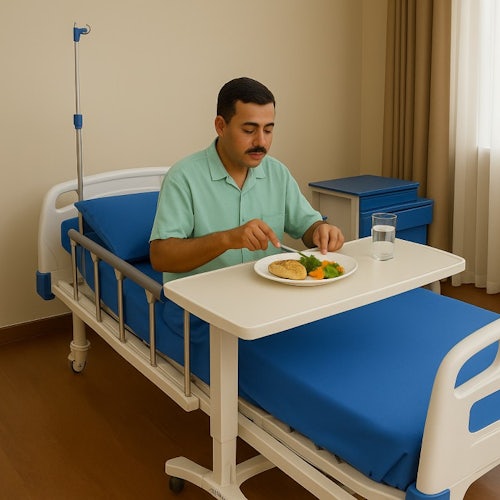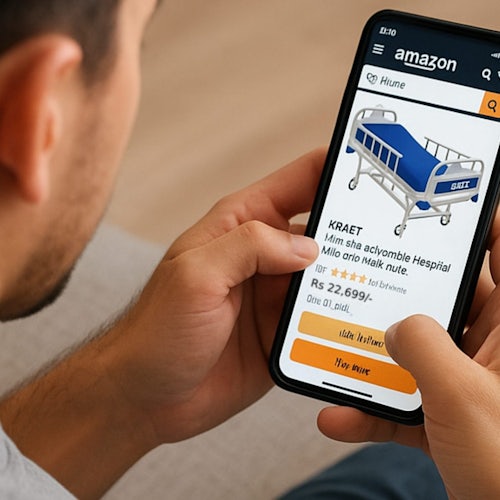The Rise of Wearable Tracking Devices
The era of self-monitoring is here. Patients can now take charge of their health with the help of wearable tracking devices.
Everyone seems to be talking about the wearable technology that has taken the world by storm. They are compact, accurate and of course, they come with a huge number of advantages to the users. From just being a mere concept to offering countless options today, wearable tracking devices have come a long way. Wearable technology embeds small motion sensors that track information with respect to health, fitness and more. All readings are synced to smartphones, thus making it accessible and instantaneous. Initially used for the purpose of fitness, wearable technology is branching out to various other streams such as healthcare.
For several years, the concept of wearable technology was circling the minds of engineers but they could not quite bring about its inception due to slow processors and lack of resources. Today, with the help of long-lasting power, around the clock internet connectivity and microprocessors with impeccable speed, the application of wearable technology is endless and the market is blooming with innovations that are efficient and completely reliable. Tech companies that manufacture these wearable tracking devices observe the needs and requirements of their consumers. While some of these devices are dedicated to fitness tracking, others take charge of personal tasks, reminders, and assistance. From tracking fitness and sleep cycles to vital signs and task accomplishments, tracking devices are designed to track almost everything. For example, if you are a fitness enthusiast, you can purchase a device that can be worn on your wrist all day. The tracking device will note the number of steps you take, your heart rate and other vital signs.
The demand for tracking devices escalated quickly due to their efficiency. They have also made their way straight into the healthcare industry, and how! These devices are simplifying the face of medical treatments and doctor’s appointments. In terms of technology, the manufacturers have just begun to explore and what lies beneath is impeccable scope in revolutionizing healthcare. Here are three massive advantages of using wearable tracking devices:
- Elevates personal safety: Enabled with GPS, trackers keep a tab on your location, surroundings, travel speed etc. In addition, a click of a button can alert relevant people in case of an emergency.
- Keeps track of health and fitness: Wearable technology redefined fitness. Fitness is all about control and planning. These devices help you do just that. From the amount of sleep you have had to the number of miles you’ve ran. It makes note of everything. It comes in handy for those who suffer from chronic illnesses. Their vital signs are always documented and if a complication arises, the doctors are informed. Thus, it saves lives, for real!
- Improves communication and connectivity: A device that alerts you about your calls, the location of your phone and gives you reminders to get in touch with a missed call. So much assistance from a small piece of technology on your wrist, face or arms, for instance, is a huge achievement for technology.
Healthcare Scenario:
Wearable tracking devices are great at measuring what is going on inside and around a person. They can record the heart rate, temperature, fat composition and overall health by simply being in touch with the skin. They also use GPS and accelerometers to gauge movement, speed and the distance travelled. Information is vital for a detailed analysis of a patient in their medical treatment and wearable technology provides just that. Throughout the data, it monitors and records all the information needed on various parameters. Something as simple as how well you have sleep and how much you have exercised can really help your doctor point to the right direction towards a better quality of life.
Wearable technology can change the entire way we look at healthcare. However, technology always comes with glitches. The manufacturers must be affirmative when it comes to the safety of information tracked and recorded by these devices. There should be no room to hackers as they could tamper with the information which could be fatal to the patient. Secondly, the accuracy of the device needs to be questioned rigorously. For example, if a tracking device notes the vital signs of a patient faultily due to improper functioning of sensors or any other technical glitch, the patient could lose a life or face an immense amount of pain which needs to be avoided at all costs.
With the adoption of wearable tracking devices in healthcare by both doctors and patients, we have empowered ourselves with the control to improve our health. Quite a lot of us do not understand why our body does what it does. A tracker would help you figure the causes following which you can come up with a solution. The future of wearable tracking devices is being cemented into various medical treatments. Having abundant data will enable the doctors to narrow down their diagnosis and find precision at the earlier stages of consultation instead of having to take a huge number of tests to achieve comprehension of a patient's ailment. Such innovations have awed the entire world and the growth chart will shoot up in the next few years as more and more people will be accustomed to putting their trust on their tracking devices. It personifies technological smartness at its best. The foundation has been made. The technological advancement to better provide excellent treatment and medical care options is what will win the tracking race in the field of healthcare.








































